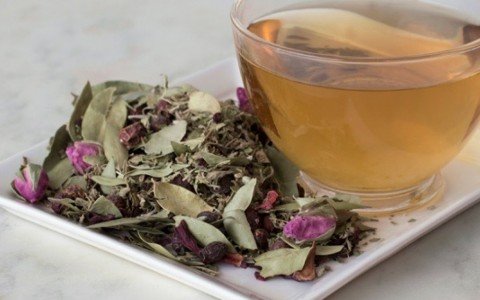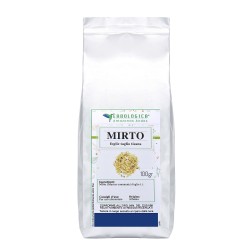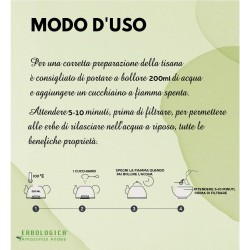
Mirto come si usa e i suoi benefici per l'organismo
Il mirto, una pianta sempreverde appartenente alla famiglia delle Myrtaceae, è conosciuto per i suoi molteplici utilizzi e benefici per la salute.
Questa pianta ha una lunga storia di utilizzo sia in ambito medicinale che culinario, e la sua importanza può essere rintracciata sin dai tempi antichi.
Nel corso dei secoli, il mirto è stato associato a molte tradizioni culturali e religiose, diventando un simbolo di amore, fertilità e guarigione.
Le proprietà scientifiche del mirto
Il mirto è ricco di composti bioattivi che conferiscono alla pianta le sue proprietà curative.
Questi composti includono flavonoidi, tannini, terpeni e oli essenziali.
Grazie alla sua composizione unica, il mirto ha dimostrato di avere effetti antinfiammatori, antimicrobici, antiossidanti e antivirali.
Contiene anche vitamine e minerali essenziali che contribuiscono al benessere generale dell'organismo.
I benefici per la salute del mirto: supporto al sistema immunitario, salute delle vie respiratorie e altro ancora
Uno dei principali benefici del mirto è il suo supporto al sistema immunitario.
Grazie alle sue proprietà antimicrobiche, il mirto può aiutare a combattere i batteri e i virus che possono causare malattie.
Può contribuire a rafforzare il sistema immunitario, aiutando l'organismo a difendersi meglio dagli agenti patogeni.
Oltre al supporto immunitario, è noto anche per i suoi effetti benefici sulle vie respiratorie.
Grazie alle sue proprietà antinfiammatorie e antispasmodiche, può aiutare a lenire la tosse, la congestione nasale e altri disturbi respiratori.
Inoltre, l'inalazione dell'olio essenziale di mirto può favorire il rilassamento delle vie respiratorie, facilitando la respirazione.
Mirto come rimedio naturale per varie condizioni: raffreddore, tosse, congestione e allergie
Il mirto è da lungo tempo utilizzato come rimedio naturale per alleviare i sintomi del raffreddore, della tosse, della congestione e delle allergie.
Grazie alle sue proprietà espettoranti e antinfiammatorie, può aiutare a ridurre la produzione di muco e a lenire l'irritazione delle vie respiratorie.
Ha dimostrato di avere effetti antistaminici, che possono contribuire ad alleviare i sintomi delle allergie.
Per utilizzare il mirto come rimedio naturale, si possono preparare infusi o decotti utilizzando le foglie essiccate della pianta.
Questi possono essere consumati caldi o freddi, a seconda delle preferenze personali.
L'olio essenziale di mirto può essere utilizzato per massaggi o per l'inalazione, per ottenere i benefici curativi direttamente.
Mirto nella cura della pelle: il suo ruolo nel promuovere una pelle e capelli sani
I suoi benefici per la salute interna, il mirto può anche essere utilizzato per promuovere una pelle e capelli sani.
Grazie alle sue proprietà antinfiammatorie, antimicrobiche e antiossidanti, può aiutare a lenire l'irritazione cutanea, ridurre l'acne e favorire la guarigione delle ferite.
Inoltre, l'olio essenziale può essere aggiunto a shampoo o balsami per capelli per migliorare la salute dei capelli e del cuoio capelluto.
Utilizzarlo nella cura della pelle, si possono preparare degli impacchi o delle lozioni utilizzando le foglie o l'olio essenziale della pianta.
Questi possono essere applicati direttamente sulla pelle o sul cuoio capelluto per ottenere i benefici desiderati.
Tuttavia, è importante fare attenzione a non utilizzare troppo mirto, in quanto potrebbe causare irritazione cutanea.
Mirto come ingrediente culinario: esalta i sapori e favorisce la digestione
Non è solo una pianta medicinale, ma anche un ingrediente culinario versatile.
Le foglie sono spesso utilizzate per aromatizzare piatti di carne, pesce e verdure, aggiungendo un sapore unico e aromatico.
Può anche aiutare nella digestione, grazie alle sue proprietà carminative e digestive.
Per utilizzare il mirto in cucina, si possono aggiungere le foglie essiccate o l'olio essenziale agli alimenti durante la preparazione.
Tuttavia, è importante ricordare che ha un sapore intenso e aromatico, quindi è consigliabile utilizzarne solo piccole quantità per evitare di sovrastare gli altri sapori.
Suggerimenti per incorporare il mirto nella routine quotidiana
Per sfruttare al meglio i benefici, è possibile incorporarlo nella routine quotidiana in vari modi.
Ad esempio, si possono preparare tisane o infusi utilizzando le foglie essiccate del mirto e berli al mattino o alla sera.
Inoltre, è possibile aggiungere il mirto come ingrediente in diverse ricette, come ad esempio insalate, zuppe o piatti principali.
In questo modo, si può gustare il sapore unico del mirto mentre si beneficia delle sue proprietà curative.
È importante ricordare di utilizzarlo con moderazione e di consultare un professionista della salute prima di utilizzarlo come rimedio naturale.
Olio essenziale di mirto: usi e benefici
L'olio essenziale di mirto è un concentrato potente delle proprietà curative.
Questo olio può essere utilizzato in vari modi per ottenere i suoi benefici.
Ad esempio, l'olio essenziale di mirto può essere aggiunto a diffusori o vaporizzatori per purificare l'aria e favorire il rilassamento.
Inoltre, l'olio essenziale può essere utilizzato per massaggi o per inalazione per ottenere i benefici curativi direttamente.
Coltivazione e sostenibilità del mirto
La coltivazione del mirto può essere un'attività gratificante e sostenibile.
Il mirto è una pianta resistente che può essere coltivata in diversi climi e terreni.
Tuttavia, è importante assicurarsi di coltivare il mirto in modo sostenibile, rispettando l'ambiente e le risorse naturali.
Per coltivare il mirto, è possibile acquistare delle piantine da vivaisti specializzati o raccogliere i semi della pianta matura.
È importante fornire un terreno ben drenato e sole diretto per favorire la sua crescita.
Importante prestare attenzione all'irrigazione e alla potatura regolare per mantenere la pianta sana e vigorosa.
Conclusioni - Abbraccia il potere del mirto per uno stile di vita più sano
In conclusione, il mirto è una pianta versatile che offre numerosi benefici per la salute.
Grazie alle sue proprietà curative e alle sue molteplici applicazioni, il mirto può essere utilizzato come rimedio naturale per vari disturbi e come ingrediente culinario per esaltare i sapori.
Se sei interessato a sperimentare i benefici del mirto, ti consiglio di consultare un professionista della salute per determinare il modo migliore per utilizzarlo.
Ricorda sempre di utilizzare il mirto con moderazione e di seguire le linee guida di sicurezza quando si utilizzano oli essenziali.
Scegli prodotti di mirto di alta qualità e coltiva la pianta in modo sostenibile per godere appieno dei suoi benefici.
Abbraccia il potere del mirto e scopri come può migliorare il tuo stile di vita e la tua salute.



